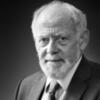Chris Gosden
Author of Magic: A History: From Alchemy to Witchcraft, from the Ice Age to the Present
About the Author
Works by Chris Gosden
Magic: A History: From Alchemy to Witchcraft, from the Ice Age to the Present (2020) 286 copies, 7 reviews
Associated Works
Tagged
Common Knowledge
- Canonical name
- Gosden, Chris
- Legal name
- Gosden, Christopher Hugh
- Birthdate
- 1955-09-06
- Gender
- male
- Nationality
- UK (dual citizenship)
Australia (dual citizenship) - Birthplace
- UK
- Places of residence
- UK
Australia
Australia Capital Territory, Australia
Melbourne, Victoria, Australia
Oxfordshire, England, UK - Education
- University of Sheffield (BA|archaeology|1977)
University of Sheffield (PhD|archaeology|1983)
University of Oxford (MA) - Occupations
- curator (Pitt Rivers Museum)
Professor of Archaeology
Professor of European Archaeology
Trustee of the British Museum - Organizations
- Australian National University
La Trobe University
St Cross College, Oxford - Awards and honors
- Emeritus Fellow of St Cross College, Oxford
Fellow of Keble College, Oxford (2006)
Fellow of the British Academy (2005)
Corresponding Fellow, Australian Academy of the Humanities (2016)
Members
Reviews
Awards
You May Also Like
Associated Authors
Statistics
- Works
- 13
- Also by
- 3
- Members
- 611
- Popularity
- #41,144
- Rating
- 3.5
- Reviews
- 9
- ISBNs
- 57
- Languages
- 6













